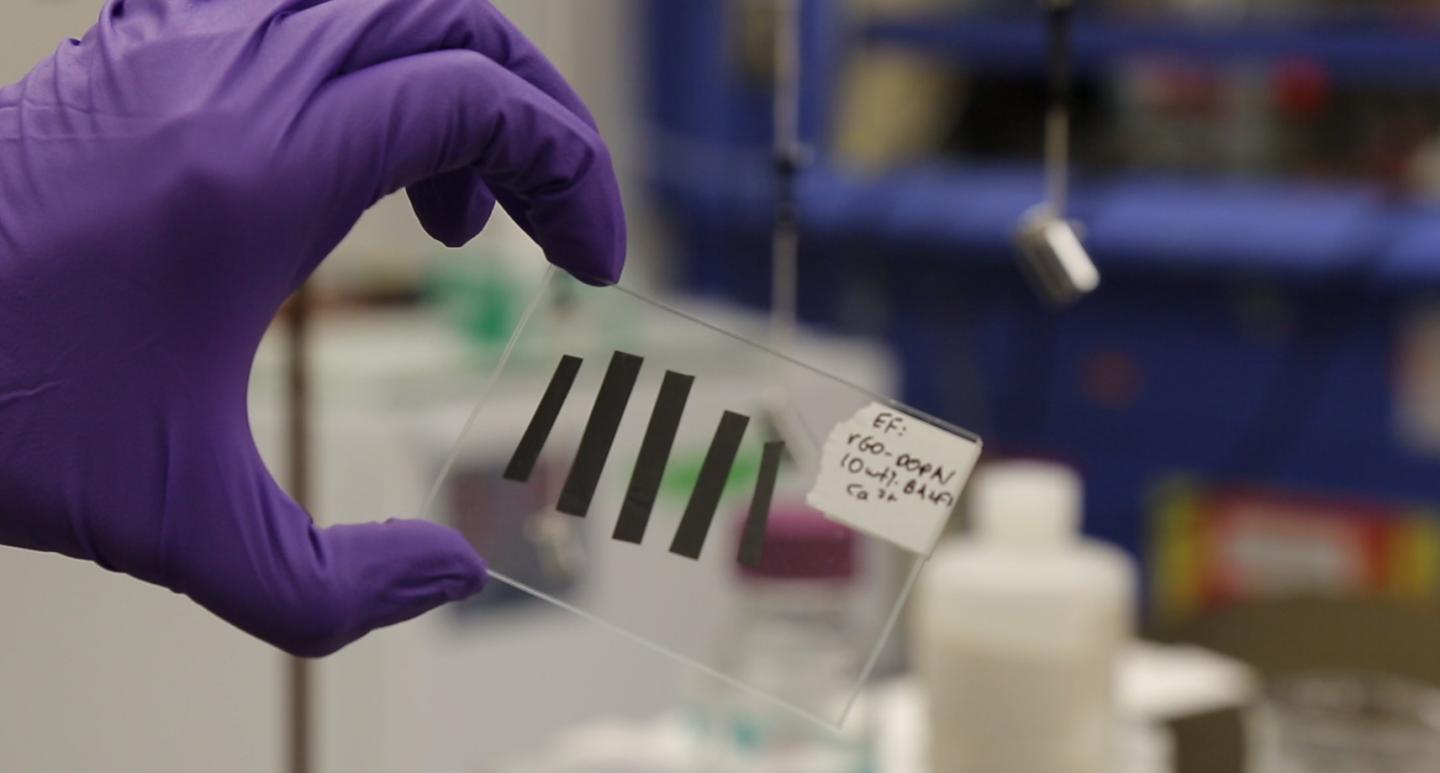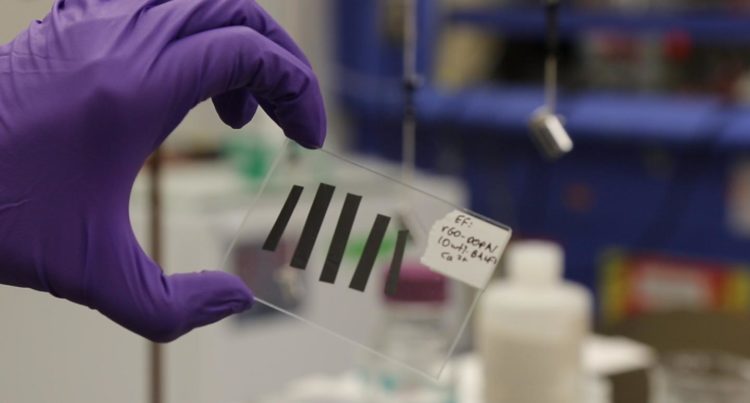
Credit: Texas A&M Engineering
The rise in popularity of electric vehicles and aircraft presents the possibility of moving away from fossil fuels toward a more sustainable future. While significant technological advancements have dramatically increased the efficiency of these vehicles, there are still several issues standing in the way of widespread adoption.
One of the most significant of these challenges has to do with mass, as even the most current electric vehicle batteries and supercapacitors are incredibly heavy. A research team from the Texas A&M University College of Engineering is approaching the mass problem from a unique angle.
Most of the research aimed at lowering the mass of electric vehicles has focused on increasing the energy density, thus reducing the weight of the battery or supercapacitor itself. However, a team led by Dr. Jodie Lutkenhaus, professor in the Artie McFerrin Department of Chemical Engineering, believes that lighter electric vehicles and aircraft can be achieved by storing energy within the structural body panels. This approach presents its own set of technical challenges, as it requires the development of batteries and supercapacitors with the same sort of mechanical properties as the structural body panels. Specifically, batteries and supercapacitor electrodes are often formed with brittle materials and are not mechanically strong.
In an article published in Matter, the research team described the process of creating new supercapacitor electrodes that have drastically improved mechanical properties. In this work, the research team was able to create very strong and stiff electrodes based on dopamine functionalized graphene and Kevlar nanofibers. Dopamine, which is also a neurotransmitter, is a highly adhesive molecule that mimics the proteins that allow mussels to stick to virtually any surface. The use of dopamine and calcium ions leads to a significant improvement in mechanical performance.
In fact, in the article, researchers report supercapacitor electrodes with the highest, to date, multifunctional efficiency (a metric that evaluates a multifunctional material based on both mechanical and electrochemical performance) for graphene-based electrodes.
This research leads to an entirely new family of structural electrodes, which opens the door to the development of lighter electric vehicles and aircraft.
While this work mostly focused on supercapacitors, Lutkenhaus hopes to translate the research into creating sturdy, stiff batteries.
###
The research team includes Paraskevi Flouda, a doctoral student in the Department of Materials Science and Engineering and lead author of the article; Lutkenhaus, professor, Presidential Impact Fellow and holder of the William and Ruth Neely Faculty Fellowship in the Department of Chemical Engineering; Dr. Micah Green, associate professor, Nancy and Dan Zivney ’73 Faculty Fellow and director of the graduate program in the Department of Chemical Engineering; Dr. Dimitris Lagoudas, professor in the Department of Aerospace Engineering, University Distinguished Professor, John and Bea Slattery Chair Professor and senior associate dean for research; and Smit A. Shah, a doctoral student in the Department of Chemical Engineering.
Media Contact
Amy Halbert
[email protected]
979-458-4243
Original Source
https:/
Related Journal Article
http://dx.





